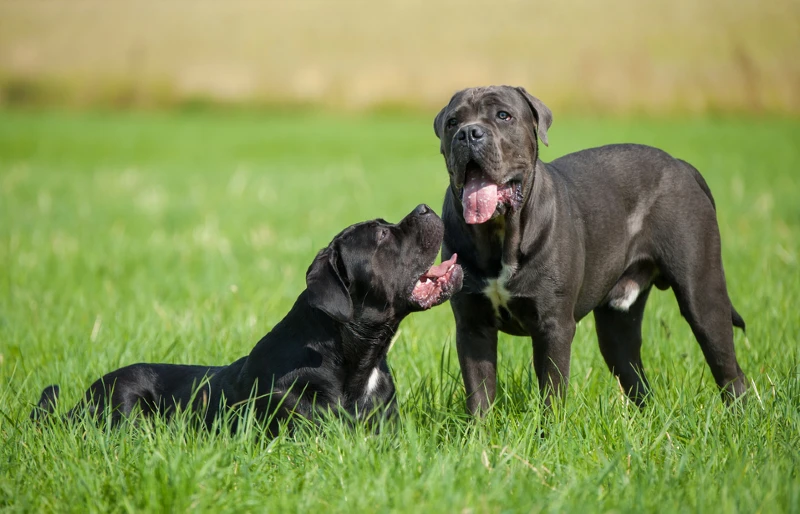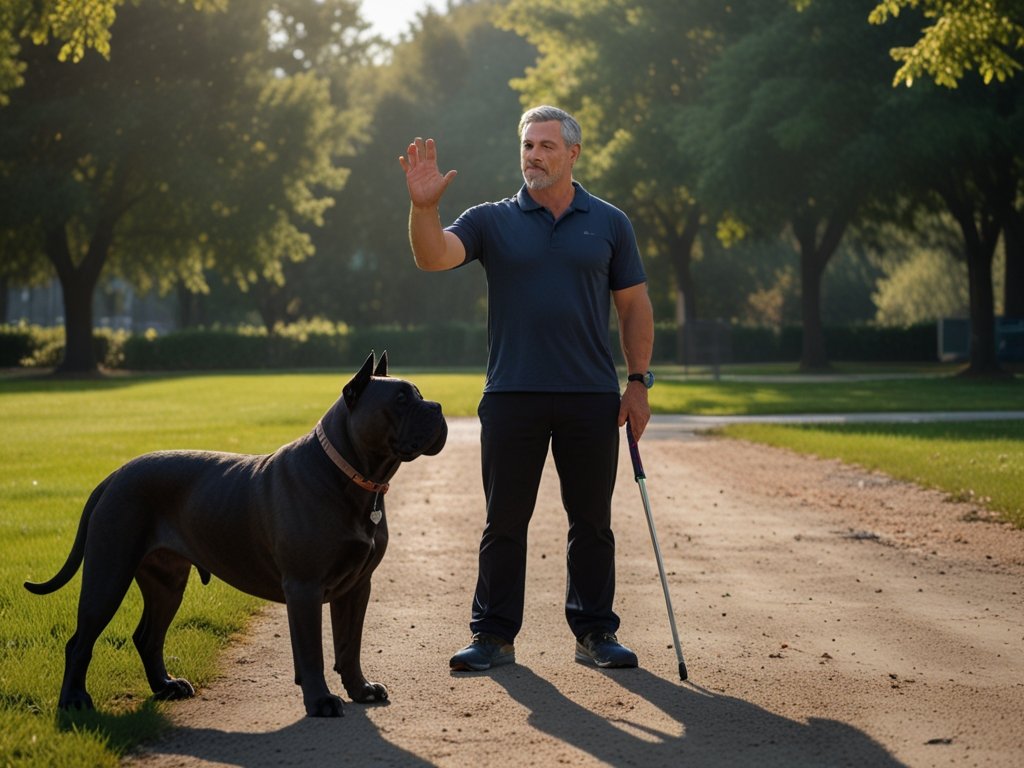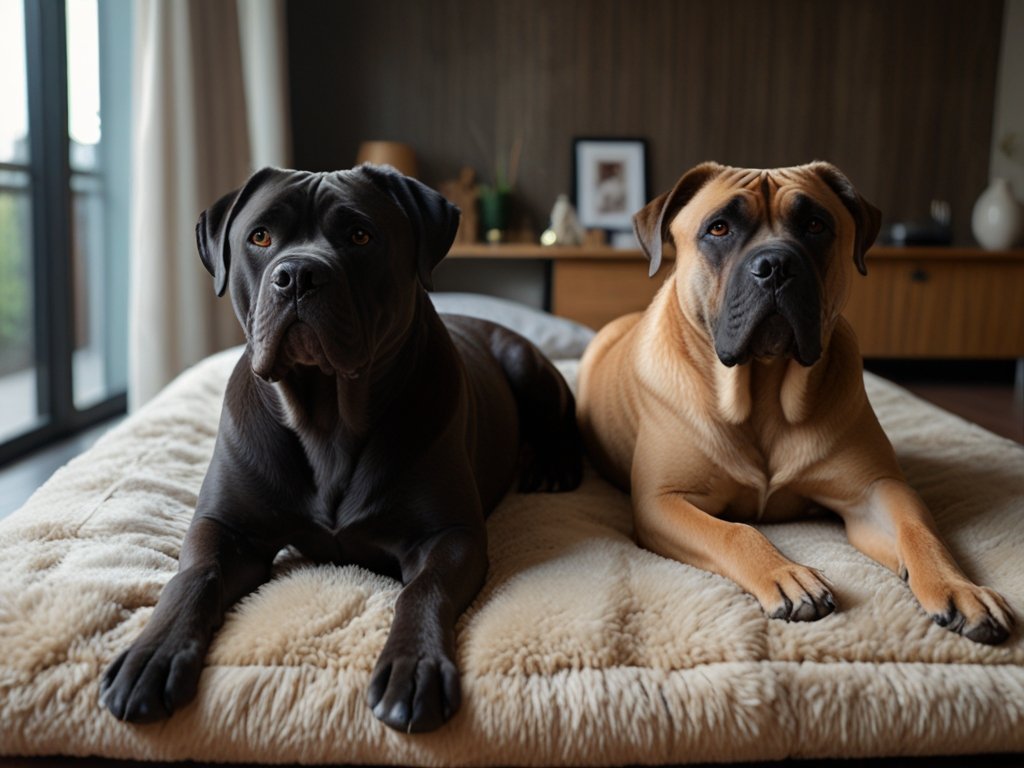Owning a Cane Corso can be a rewarding experience, but preventing behavioral problems is crucial for a harmonious relationship. In this comprehensive guide to preventing behavioral problems in Cane Corsos, we'll explore effective strategies to ensure your powerful companion grows into a well-balanced and sociable dog. Whether you're a new Cane Corso owner or looking to address potential issues, you're in the right place to gain expert insights that will foster positive behaviors and prevent common problems associated with this majestic breed.
- Understanding Cane Corso Temperament and Instincts
- Essential Early Training for Behavioral Prevention
- Socialization: The Key to a Well-Adjusted Cane Corso
- Managing Protective Instincts and Territorial Behavior
- Exercise and Mental Stimulation for Behavioral Balance
- Addressing Common Behavioral Challenges in Cane Corsos
- Long-Term Strategies for Maintaining Good Behavior
Understanding Cane Corso Temperament and Instincts
Before diving into prevention strategies, it's essential to understand the unique temperament and instincts of the Cane Corso breed.

Natural Traits and Predispositions
Cane Corsos have distinct characteristics that influence their behavior:
- Protective nature: Strong guarding instincts
- Intelligence: Quick learners with a need for mental stimulation
- Loyalty: Form strong bonds with their family
- Confidence: Generally self-assured and calm
Key Point: Understanding these traits helps you channel them positively and prevent issues.
The Importance of Early Socialization
Early socialization is crucial for Cane Corsos:
- Critical period: Between 3-16 weeks of age
- Exposure to various stimuli: People, animals, environments, and situations
- Positive experiences: Ensure all interactions are rewarding and stress-free
Pro Tip: A well-socialized Cane Corso is more likely to be confident and less prone to fear-based aggression.
Recognizing Potential Triggers for Behavioral Issues
Be aware of common triggers that can lead to problems:
- Lack of exercise: Can result in pent-up energy and destructive behavior
- Inconsistent training: May lead to confusion and disobedience
- Insufficient mental stimulation: Can cause boredom and anxiety
- Improper socialization: Might result in fear or aggression towards unfamiliar stimuli
Identifying these triggers early allows you to address them proactively.
Essential Early Training for Behavioral Prevention
Proper training from an early age is key to preventing behavioral issues in Cane Corsos.

Establishing Leadership and Trust
Your Cane Corso needs to see you as a confident leader:
- Consistent rules: Set clear boundaries and stick to them
- Positive reinforcement: Reward good behavior to build trust
- Calm assertiveness: Lead with confidence, not aggression
Remember, leadership is about guidance, not domination.
Basic Obedience Training Techniques
Focus on these fundamental commands:
- Sit, Stay, Come: Essential for control in various situations
- Leave it: Crucial for preventing your Cane Corso from picking up harmful objects
- Heel: Important for managing their strength during walks
Training Tip: Keep sessions short (5-10 minutes) but frequent for best results.
Positive Reinforcement Strategies
Positive reinforcement is highly effective with Cane Corsos:
- Use high-value treats: Find what motivates your dog most
- Timing is key: Reward desired behaviors immediately
- Verbal praise: Combine treats with enthusiastic verbal approval
- Consistency: Ensure all family members follow the same training approach
Avoid punishment-based methods, as they can damage trust and potentially increase aggression.
Proper socialization is crucial for developing a well-rounded Cane Corso.

Proper Exposure to Various Stimuli
Create a diverse socialization plan:
| Stimuli Type | Examples | Importance |
|---|---|---|
| People | Different ages, appearances, behaviors | Prevents fear of strangers |
| Animals | Dogs, cats, livestock | Reduces inter-species aggression |
| Environments | Urban areas, parks, different floor surfaces | Builds confidence in various settings |
| Sounds | Traffic, appliances, fireworks (recordings) | Prevents noise phobias |
Remember: Always ensure experiences are positive and not overwhelming.
Safe Interactions with People and Other Animals
Guide your Cane Corso through social interactions:
- Controlled introductions: Manage meetings with new people and animals
- Body language awareness: Teach your dog to recognize and respect others' signals
- Interrupt and redirect: Use commands to manage over-excitement or stress
Safety First: Never force interactions if your Cane Corso shows signs of discomfort.
Overcoming Fear and Anxiety Through Positive Experiences
Address fear proactively:
- Gradual exposure: Start with low-intensity versions of fear triggers
- Positive associations: Pair scary stimuli with treats and praise
- Patience: Allow your Cane Corso to progress at their own pace
Remember, forcing a fearful dog into scary situations can worsen anxiety.
Managing Protective Instincts and Territorial Behavior
Cane Corsos have strong protective instincts that need proper management.

Channeling Guarding Tendencies Positively
Direct natural guarding behaviors appropriately:
- Establish boundaries: Teach your dog where guarding is acceptable
- "Friend" command: Use this to indicate when someone is welcome
- Controlled alert barking: Allow a few barks, then use a "quiet" command
Pro Tip: A well-socialized Cane Corso is less likely to exhibit inappropriate guarding behaviors.
Teaching Appropriate Responses to Perceived Threats
Train your Cane Corso to respond correctly to potential threats:
- "Watch" command: Teach your dog to look to you for guidance
- Recall training: Ensure your dog will come to you in any situation
- Threshold training: Teach your dog to remain calm when people approach your property
Consistency is key in reinforcing these behaviors.
Preventing Over-Protectiveness and Resource Guarding
Address these issues early:
- Hand-feeding exercises: Prevent food aggression
- "Drop it" and "Leave it" commands: Essential for managing possessiveness
- Sharing is rewarding: Make giving up items a positive experience
Important: If resource guarding becomes severe, consult a professional dog behaviorist.
Exercise and Mental Stimulation for Behavioral Balance
Proper physical and mental exercise is crucial for preventing behavioral issues in Cane Corsos.

Meeting Physical Exercise Needs
Cane Corsos require significant exercise:
- Daily walks: Aim for at least 1-2 hours of walking per day
- Play sessions: Incorporate games like fetch or tug-of-war
- Swimming: Excellent low-impact exercise for joint health
Remember, a tired Cane Corso is often a well-behaved Cane Corso.
Providing Mental Challenges and Enrichment
Mental stimulation is as important as physical exercise:
- Puzzle toys: Use food-dispensing toys to make mealtimes engaging
- Training sessions: Incorporate daily training to keep their minds sharp
- Scent work: Hide treats or toys for your dog to find
- Obedience courses: Consider advanced training or agility classes
Rotate activities to keep your Cane Corso engaged and prevent boredom.
The Role of Routine in Preventing Destructive Behaviors
Establish a consistent daily routine:
- Regular exercise times: Set specific times for walks and play
- Feeding schedule: Stick to consistent meal times
- Training sessions: Incorporate short, daily training periods
A predictable routine helps reduce anxiety and prevents many problem behaviors.
Addressing Common Behavioral Challenges in Cane Corsos
Even with prevention, some behavioral issues may arise. Here's how to address them.

Preventing and Managing Aggression
Aggression in Cane Corsos can be serious:
- Identify triggers: Notice what situations lead to aggressive responses
- Early intervention: Address signs of aggression immediately
- Professional help: Consult a behaviorist for severe or persistent aggression
Never punish aggression, as this can escalate the problem.
Dealing with Separation Anxiety
Cane Corsos can be prone to separation anxiety:
- Gradual departures: Practice short absences and gradually increase duration
- Engaging toys: Leave puzzle toys to keep your dog occupied
- Calm departures and arrivals: Avoid making a big fuss when leaving or returning
Consider crate training as a way to provide a safe, comforting space.
Curbing Excessive Barking and Chewing
Address these common issues proactively:
- Identify causes: Determine why your Cane Corso is barking or chewing
- Provide alternatives: Offer appropriate chew toys and teach the "quiet" command
- Increase exercise: Often, these behaviors stem from boredom or excess energy
Remember, consistency is key in modifying these behaviors.
Long-Term Strategies for Maintaining Good Behavior
Preventing behavioral problems is an ongoing process throughout your Cane Corso's life.

Consistent Training Throughout Life Stages
Adapt your training approach as your Cane Corso grows:
- Puppy (0-1 year): Focus on socialization and basic obedience
- Adolescent (1-2 years): Reinforce training and address any emerging issues
- Adult (2-7 years): Maintain skills and possibly introduce advanced training
- Senior (7+ years): Adjust activities to suit changing physical capabilities
Key Point: Training is a lifelong commitment, not just a puppy phase.
Adapting to Changing Needs as Your Cane Corso Ages
Be prepared to adjust your approach:
- Regular health check-ups: Address any physical issues that may affect behavior
- Adjust exercise routines: Modify activities to suit your aging dog's abilities
- Continue mental stimulation: Keep your senior Cane Corso's mind sharp with appropriate activities
Stay attuned to your dog's changing needs to maintain good behavior.
When to Seek Professional Help for Behavioral Issues
Don't hesitate to consult experts if:
- Aggression persists or escalates despite your efforts
- Anxiety or fear significantly impacts your dog's quality of life
- New behaviors emerge suddenly, which could indicate health issues
Professional trainers or behaviorists can provide tailored strategies for your specific situation.

Preventing behavioral problems in Cane Corsos requires dedication, consistency, and a deep understanding of the breed's unique characteristics. By implementing the strategies outlined in this comprehensive guide, you can help your Cane Corso develop into a well-balanced, sociable, and joy to live with companion.
Remember, every dog is unique, so be prepared to adapt your approach based on your individual Cane Corso's personality and needs. With proper training, socialization, and care, you can prevent many common behavioral issues and enjoy a harmonious relationship with your loyal Cane Corso.
Are you ready to take proactive steps in preventing behavioral problems in your Cane Corso? Start implementing these expert tips today and watch your powerful companion transform into a model of good behavior. Your efforts will not only create a more peaceful home environment but also strengthen the bond between you and your majestic Cane Corso.
Do you have any questions about preventing behavioral problems in your Cane Corso? Are you currently facing any challenges in your training journey? Share your thoughts or experiences in the comments below! Let's build a community of knowledgeable Cane Corso owners and help each other raise well-behaved, balanced dogs.


Leave a Reply